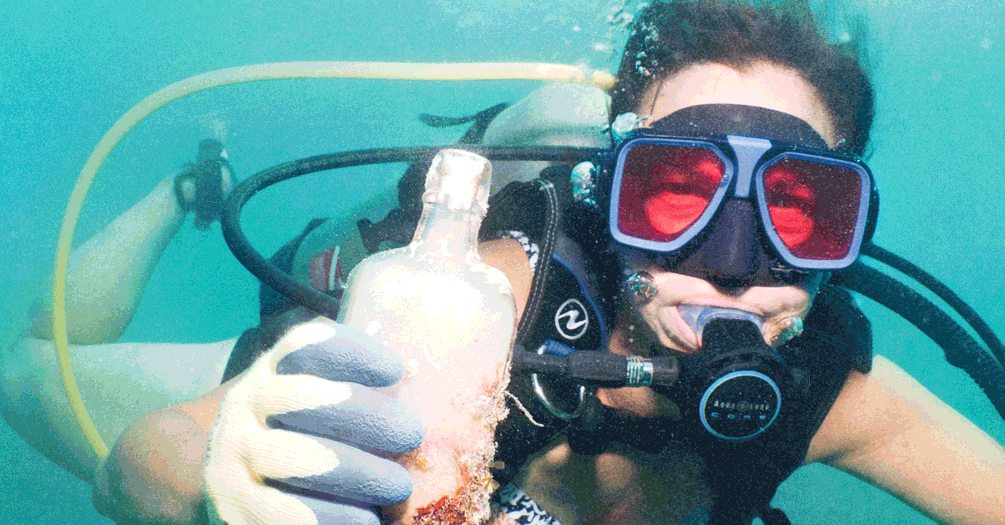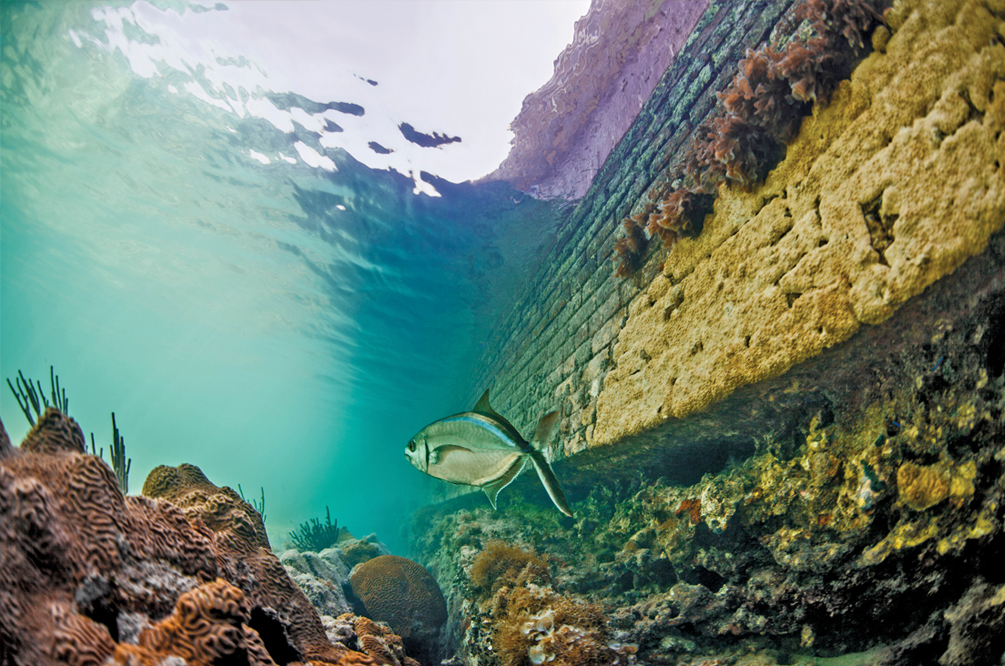Kris Sarri: Combating climate change with a policy pen

By Bob Cunningham and Demetria Wambia
Kris Sarri, MPH ’97, exemplifies the University of Michigan mission of becoming leaders and best through her lifelong dedication to bettering the earth’s health through policy and action.
Today, Sarri’s storied career is built upon two decades of work in Washington, DC, at the highest levels of the federal government. The philosophy she developed at the University of Michigan and while working on and around Capitol Hill boils down to a simple message: A thriving environment depends on engaging people in its stewardship. For her, public health weaves together environmental protection with community development.
“Climate change impacts the economy, environment, health and safety, and quality of life,” Sarri said. “To address the climate crisis, we must build partnerships and coalitions across diverse stakeholders and sectors, find shared interests, translate policy into impact and effectively communicate why it matters.”

Some of the work that she is proudest includes collaborating across political parties and with local and national organizations to protect more public lands and expand marine protected areas to connect more people to nature. As Sarri points out, nature holds the key to addressing climate change. If we do not protect and restore natural areas and wildlife, then we will have no chance of slowing global temperatures from surpassing the level that scientists agree is necessary to avoid the worst climate change impacts.
“Our public lands and protected waters are incredible gems,” said Sarri, an Ann Arbor native who earned a Master of Public Health in Health Behavior and Health Education from the School of Public Health and a Master of Science in Natural Resources from the School of Environment and Sustainability. “They protect spectacular areas that are important to maintaining healthy ecosystems, the communities that rely on them and improving our quality of life.”
During the Obama administration, she was part of the effort to permanently and fully fund the Land and Water Conservation Fund (LWCF)—a goal that reached its fruition in 2020 during the Trump administration. LWCF protects land in national parks, wildlife refuges, forests and other public lands. It also supports state and local parks and preserves battlefields and other historic and cultural sites.
“Nature is important to our health, mental well-being and the economy,” Sarri said. “It provides the air we breathe, water we drink, food we eat and many other products we use. Sustaining natural areas and creating urban parks is about safeguarding people’s health. Now there are resources available to bring outdoor recreation much closer to people and to protect nature for the solutions it provides to climate change.”
Her roles in Washington include serving as a senior policy advisor to US Sen. Jack Reed (D., RI), and the deputy director of Policy and Strategic Planning for the Department of Commerce, associate director of legislative affairs at the Office of Management and Budget, and principal deputy assistant secretary for Policy, Management and Budget for the Department of the Interior during the Obama administration.
All these positions required a crystal-clear grasp of disparate facts and a sharp understanding of how to use those facts in the creation of practical policy measures. For Sarri, who left federal government work in 2016, that policy was often about the natural environment, specifically climate change.
“I’ve been working on climate change issues for years,” said Sarri, who has been nominated by President Biden to be the assistant secretary of state for Oceans and International Environmental and Scientific Affairs. “The message finally broke through broadly under the Biden administration. We are experiencing extreme heat waves, ocean waters above 100 degrees, deadly wildfires and dangerous smoke from them, and an above-average hurricane season in the Atlantic Ocean. People understand that it’s a pressing issue impacting their health and that we need to address. We wouldn’t have gotten here without young voices saying, ‘We need to do something! It’s impacting our environment, our quality of life and our future.’”
That scenario played out in August when a Montana judge ruled that state agencies were violating young environmental activists’ constitutional right to a clean and healthful environment by allowing fossil fuels to be developed without considering its effect on the climate—a first-of-its-kind ruling in the United States.
“I think one of the things that was significant in the Montana case was that the court basically said young people have a right to inherit a good earth—they have a right to their future,” Sarri said. “It makes us think: How am I leaving the planet for this next generation who must live here and raise their families here? That is a great public health question too. Because—again—public health is not about just ‘the now,’ it is about what happened in the past and how we are going to lead in the future too.”
Pivot to president
After working for a president, Sarri left her government post to become one.
In 2016, she became the president and CEO of the National Marine Sanctuary Foundation in Silver Spring, Maryland, moving from government to nonprofit work.
“I worked with a sanctuary program when I was on Capitol Hill, and I absolutely loved it,” Sarri said. “Marine sanctuaries protect amazing seascapes and iconic animals like whales and cultural resources—they’re just incredible. They are like our national parks, except underwater.”
The switch to a foundation career did not alter her commitment to fighting climate change.
“The ocean is absolutely critical to the health of communities and our planet,” she said. “The ocean absorbs about 25% of the carbon dioxide emitted into the atmosphere by humans. That is 20 times more than plants and soil combined. A healthy ocean is a critical, but often overlooked solution to addressing climate change. Protecting it must be one of our strategies because the ocean’s ability to mitigate climate change is not without limits. I just couldn’t think of a better place to go after working for the Obama administration than to this nonprofit, working with communities on protecting nationally significant areas of the ocean.”
Nature is important to our health, mental well-being and the economy.”
Returning to Ann Arbor
Sarri returned to Ann Arbor for graduate school after studying biology and political science at Washington University in St. Louis for her undergraduate education and working in Namibia in southern Africa with the Cheetah Conservation Fund to reduce human-wildlife conflict.
Four Michigan Public Health faculty members—Barry Rabe, Barbara Israel, Julia Wondolleck and Ann Lin—had a major influence on Sarri’s career as she worked to obtain her master’s degree.
“The University of Michigan was highly ranked for public health, community organizing, public policy and natural resources,” Sarri said. “There were key professors I wanted to work with, and it seemed like a natural fit for my career interests.
“Barry and Ann challenged me to think critically about the role of public health and social justice in policy and how to analyze policies’ impacts on communities and the environment. It is because of them that I developed the skills to become the head of legislative affairs for the Office of Management and Budget.
“Barbara was my professor for community organizing. I learned skills in her class and theories of organizing that are fundamental to all my work. The book ‘The Pedagogy of the Oppressed’ and our class discussions continue to influence how I think about social justice and the work that I do.
“Julia taught me about negotiations and the importance of focusing on finding mutual interests to resolve complex problems. Talk about an everyday skill! Remembering to step back to look at interests—and not just fighting for a position—always serves me well.”
Israel said Sarri stood out in her class at the time.
“When Kris was a student in my course in community organizing, she was definitely someone who understood the inequities that burdened certain communities and the need to work alongside such communities to bring about social change,” said Israel, professor of Health Behavior and Health Education. “She asked insightful questions and displayed her ability in classroom discussions and written papers to integrate theory, research and practice. Throughout her successful career, she has clearly maintained and extended her early commitment to policy advocacy to address health inequities and promote environmental justice.”
Our public lands and waters are incredible gems.”
Moving on and reasons for hope
Sarri’s tenure as president and CEO of the National Marine Sanctuary Foundation concluded in January.
Through her leadership, the foundation developed programs that focus on wildlife conservation, underwater marine debris cleanup and habitat restoration while advocating for new and expanded sanctuaries.
Sarri also launched the foundation’s inaugural corporate partnership program to help support the National Marine Sanctuary System. The foundation’s budget also grew by more than 60% during her tenure, expanding resources to protect sanctuaries.
Going forward, Sarri continues to fight for a better planet for people and nature through her consulting firm Go Blue, named for her hometown university and the ocean that she loves. Based in Silver Spring, Maryland, Go Blue works with nonprofit organizations, businesses and government agencies to create positive social and environmental change.
One of her first major concerns as a consultant was the marine heatwave over the summer and its impacts on the ocean. Surface water temperatures off the coast of Florida soared into the 90s and surpassed 100 degrees in certain areas. Normal surface water temperatures typically range between 73 and 88 degrees, according to the National Oceanic and Atmospheric Administration.
“I think a lot of people don't realize—and this is true whether you live on the coast or in the heartland —just how much the ocean provides,” Sarri said. “People often say the forests are the lungs of the world, but the ocean provides 50% of the air we breathe; it regulates our climate and provides a tremendous number of services. These heatwaves impact the ocean’s diversity of life, which we rely on.”
How we use the ocean can have tremendous health impacts, she said, once again weaving together the environment with human health.
“When we talk about transporting marine products, many of those ports are located in disadvantaged communities and cause tremendous air quality issues,” Sarri said. “There are so many different connections between the environment and people, and if we can take good care of the environment, it'll take good care of us. It’s about environmental and human health; it’s about food provision; it’s about mental health and how nature can relieve stress and be a fruitful, regenerative source to many. It is fundamental to public health then for us to take care of the environment—that is key in my mind.”
Climate is a complex issue because of its intersectionality.
“I think the one thing that’s always unique about public health: You can look at climate and you can say it’s an environmental issue, and you can look at climate and you can say it is an economic issue,” she said. “Public health will look across climate and say it is a public health issue, and when you bring that public health lens to climate, it is about integrating all the pieces.
“It's an environmental issue, yes; it’s also an immigration issue as people are forced to leave their homes due to floods, sea levels rising and extreme health impacts. It is about what diseases emerge because we no longer have cold winters to kill off vectors; it’s extreme heat conditions and how to keep people safe, especially if they’re unhoused.
“What is unique about public health, and the reason why I went to the School of Public Health is, it has taught me how to look for connections. It’s about, how do we look at the whole system and take a community-based approach to drive change?”

